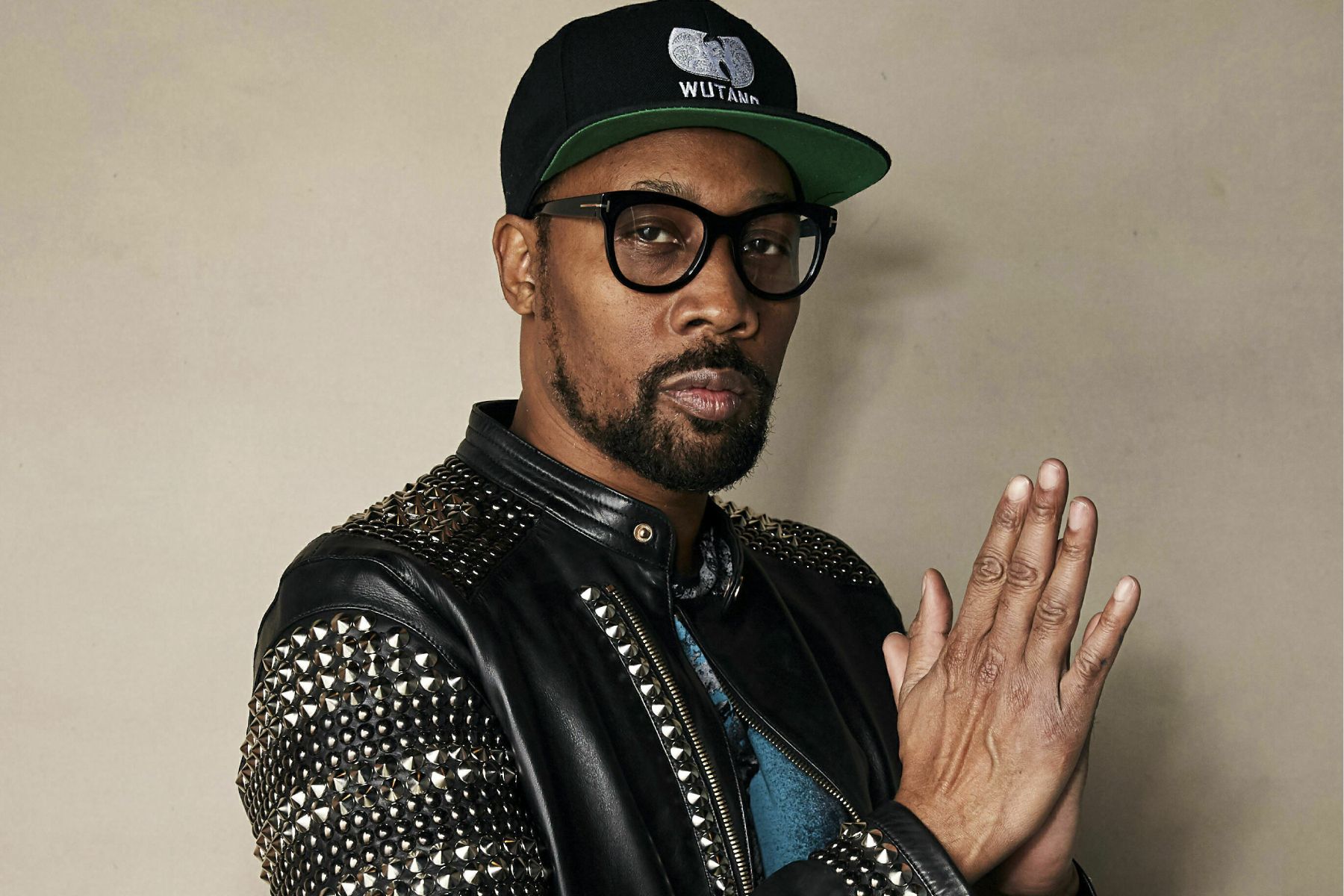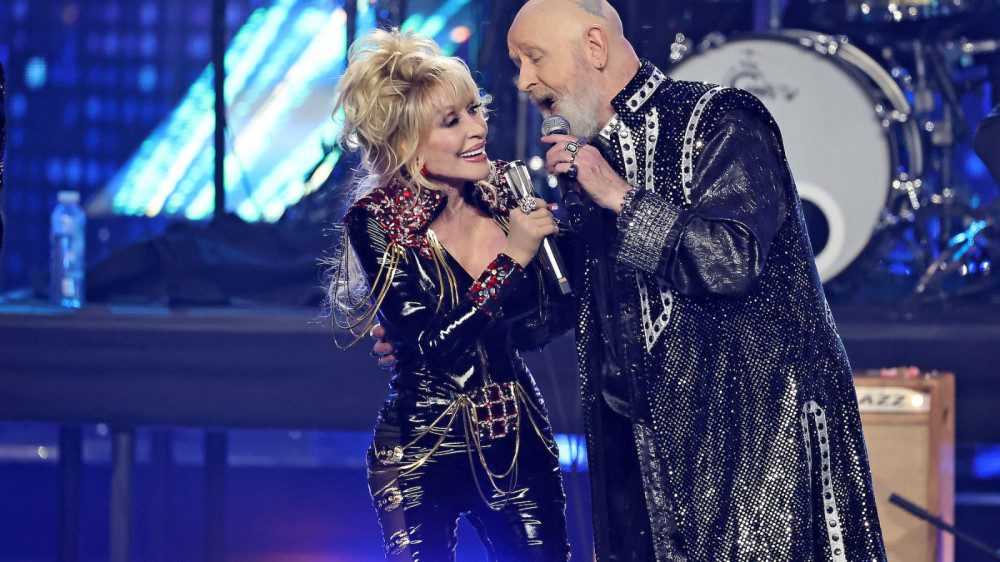
RZA Wants to Help You Find Inner Peace
“Take it as far as you can take it down,” RZA says, flashing a tranquil smile. Nine minutes into a Zoom interview from his Los Angeles home, he’s just taken 10 long seconds to draw a breath deep into his belly.
The Wu-Tang Clan founder, record producer, actor, filmmaker, and composer is also an an avid meditator and proponent of healthy-living choices like veganism — and now, he’s become the latest celebrity to partner with the mindfulness app Calm, scoring a 34-minute “Sleep Story” called King of the Sleeping City and narrated by LeBron James. “I say meditation is better than medication,” he says.
His approach to peaceful living helps with a busy creative schedule. Two weeks before the Calm drop, he was in Manhattan prepping for a still-unannounced film in which he’ll act, while also putting the finishing touches on the Sleep Story. The music was all written, but it still had to be mixed. “We had some technical glitches, which always come at the final hour,” he says. “And I found myself in the studio ’til four and five in the morning for two nights in a row. I haven’t done that in 10 years.” Then, as he explains, he’d have film-related duties starting as early as 8:00 a.m. Fortunately, he was an already an expert at finding his zen.
Before any big decision, RZA always takes at least one dedicated breath. He’ll meditate on it, too, unless he absolutely must respond with immediacy. It’s a way of life he’s been building toward for many years. “A lot of equations I had to figure out in life came to me through long walks,” he says. “There was a point when people thought I was bugged-out… Right before Wu-Tang had really gathered, I’d walk [on] Staten Island. I’d walk through all the neighborhoods and people would look at me and think I was talking to myself and shit. But I was contemplating. I was calculating.”
The story that James narrates for Calm is about a young kid navigating a bustling metropolis. That character, named Amare, finds solace on a seventh-story fire escape. Both RZA and Calm’s vice president of content, Greg Justice, say they hope the piece will attract skeptics by making the concept of mindfulness more relatable to more people.
Justice adds that King of the Sleeping City should be “the first of many” stories scored by multi-faceted musicians, but that RZA “sets the bar pretty high.” (The exec say he’s constantly having open-ended, “exploratory” conversations with likeminded artists and celebrities.)
This isn’t RZA’s first foray into making music for the wellness space; last year, he released his Guided Explorations EP in partnership with the Tazo tea company. But meditating is more of an active experience than falling into slumber, and he faced some challenges in learning to create soothing sounds that are supposed to let the listener drift off like that. “You wouldn’t be able to go to sleep to my first try,” he says through laughter. “I was excited. I threw some trap in there! It was funny how they handled me through that. They were like, ‘This sounds great, Riz — but, you know, this is more like a Hollywood movie score.’”
Having to “remove the groove” was hard for RZA. But, in the end, it wasn’t entirely lost — just subtler. There’s a groove to the percussive heartbeat of his Calm project, which RZA says is meant to serve as a sleepy through-line that keeps the concrete jungle alive even at its quietest moments just before sunrise. After figuring out the foundation, he was able to focus less on melodic ideas and more on experimental ones. This project also inspired him to play with the power of silence more.
He says he knew he was onto something when he saw his engineer falling asleep at the board. “I was like, ‘Wake up! We gotta finish this,” he recalls. “The city was about to open up in 30 minutes, and there was a beautiful calmness.”
RZA wants nothing more than to spread knowledge of his secrets to success, which revolve around the idea of resetting one’s mind and body. And while he’s only signed on for this specific Sleep Story for now, he’s open to doing other sorts of things with Calm down the line.
In the meantime, he’s working on a ton of unrelated endeavors across the film, TV, and music sectors — and he cites mindfulness as the key to keeping it all together. He takes his time to respond with a clear head on almost everything, and refuses to be pressured into anything. “Meditating is what gives you time to do everything else,” he says, explaining that he doesn’t understand when people say they “don’t have time” for the practice.
Sometimes, he says, just taking a beat can change the course of history, like when Wu-Tang’s first record-deal negotiations were happening in the early Nineties. “Somebody offered us $200,000 to sign to their company,” he says. “Another company only had $60,000. That’s a big difference. $200,000 was very tempting to everybody, but I was like, ‘Nah.’ I meditated on it and realized it wasn’t about the money. It was about the opportunity… We took less money and got more expression, and because of the more expression, Wu-Tang is still here.”
RZA’s practice is rooted in a beloved book on “the eight pieces of brocade” — a form of qigong — that he found as a kung fu-obsessed kid rummaging through a Chinatown store. Later, he’d also study under Shaolin monk Sifu Shi Yan Ming, whom he first met in the late Nineties. “You don’t have to sit still to meditate,” he says. “You can walk. You could laugh yourself into a meditative state, you could cry yourself into it. That’s why you see all these different statues of Buddha — the sleeping Buddha, the laughing Buddha, the crying Buddha. The point is that contemplation and meditation, whether it’s in stillness or in motion, rejuvenates the mind and body, and enhances your spiritual connection.”



